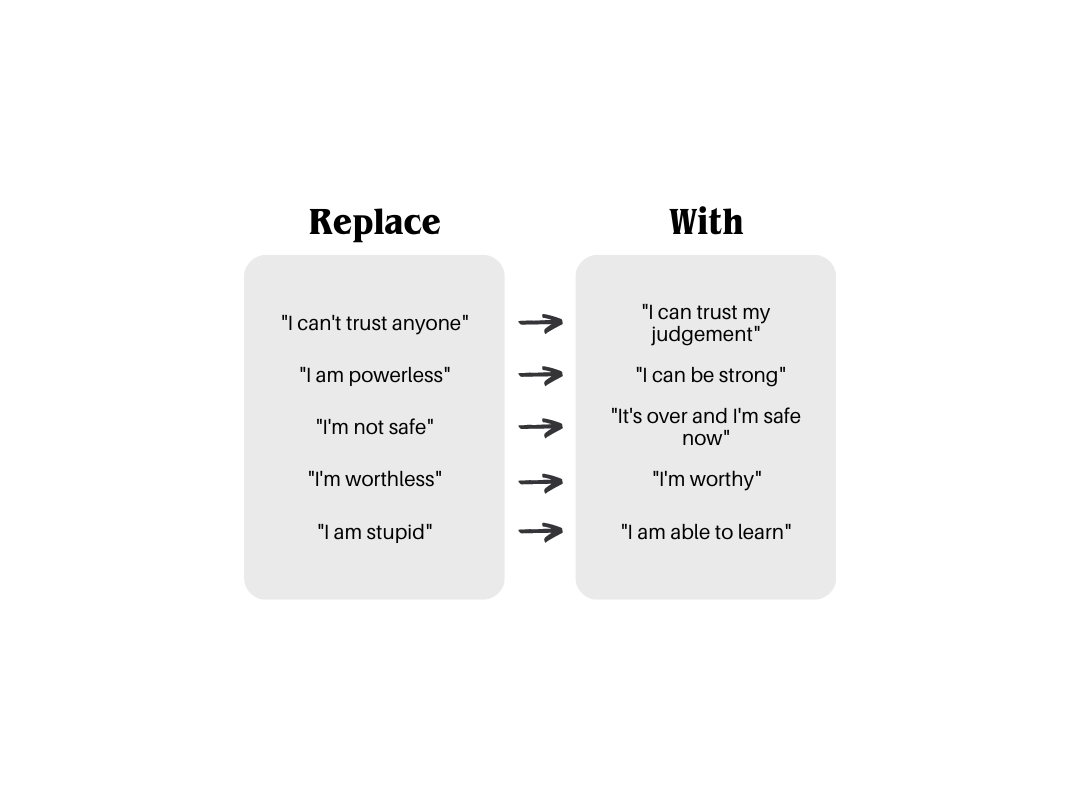What is Interpersonal Trauma?
Trauma is a complicated topic to delve into, likely one that I could ramble on about for pages. The history and evolvement of Post Traumatic Stress Disorder (PTSD) as a legitimate diagnosis, our increased threshold for tragedy, the treatment of trauma…it’s a lot. I’ll save all that for another time. Today, we’ll just focus on defining and understanding what interpersonal trauma is.
Interpersonal
in·ter·per·son·al
/ˌin(t)ərˈpərs(ə)n(ə)l/
adjective
1. relating to relationships or communication between people.
Interpersonal relationships are vital to our survival as a human race. Our lives revolve around them, literally. Work, school, family, friends, online chatrooms, social media, news media, all of it is interpersonal. These relationships of course can vary in intensity, enjoyment, connectedness, locality, and reliability. Relationships are almost impossible to avoid (unless you’re a hermit living your best life in a whimsical cabin off-grid).
Trauma.
A word we’re all perhaps familiar with, or at least have heard. Trauma is a subjective experience that is no longer defined by singular events, but rather the intensity of disturbance. Basically, if it’s wreaking havoc in your life…it may be trauma. We have different classifications of trauma such as “Big T” (real or perceived life-threatening experiences, most associated with PTSD) or “Little T” (non-life threatening, individual level experiences) trauma. As you can likely imagine, this means that trauma can look very different from one person to the next. I believe it’s unfair to lump trauma into one giant category. Yet, we see a lot of it. Trauma can be complex and needs to be treated as such.
So, thats the question, right? What really is interpersonal trauma and why should we be talking about it?
Interpersonal trauma is a type of trauma that involves harm to a person by another. Occurring in either childhood or adulthood, interpersonal trauma includes: emotional abuse, emotional neglect, physical abuse, physical neglect, and/or sexual abuse.
The impact of interpersonal trauma can be deep. It’s a wound that can feel almost impossible to heal. After being hurt deeply by someone, whether it be family, a partner, a friend, or complete stranger, our survival instincts kick in and alert us that connection is unsafe. You may find yourself withdrawing, lashing out to keep others at a safe distance both emotionally and physically. Or perhaps, you’ve learned you’re responsible for the emotional wellbeing of others so you find yourself fawning and people pleasing, without any reciprocation or regard for your own needs. We get stuck in the unhelpful relationship patterns that once hurt us.
It’s that feeling of being incredibly hurt by the betrayal of someone you once loved and thought loved you. So, you perhaps unconsciously continue to seek out people who are untrustworthy and when they inevitably betray you it’s a Gotcha! moment.
Okay, so interpersonal trauma is hurt caused by other people, which causes survivors to revert into themselves, repeat unhelpful patterns, and to feel fearful of connection. So what’s the answer to healing the impossible wound?
Here enters the paradox. To heal our deepest interpersonal wounds, we need to continue to have the very relationships that now seem all too terrifying. No, I don’t mean that you should seek out other abusers or harmful individuals. The relationships that we push away instinctively out of fear of getting close or owning our own needs within relationship as valid, have the power to help us heal. When we can reframe the beliefs that have been a product of our trauma experience, we open the door to having healthier relationships.
Through the power of many therapeutic models, but most notably, Eye Movement Desensitization and Reprocessing (EMDR), we can begin to recognize the beliefs that have been stuck in our memory and bodies that continue to disrupt our current relationships. Our stuck memories and beliefs give us a glimpse into repeated patterns in our lives; a starting point for growth. Interpersonal trauma healing requires us to engage in new vulnerable ways with others. Of course, just as trauma is a diverse experience, so is interpersonal healing…
Maggie who finds joy in intimacy and sex after being sexually assaulted.
Jamie who discloses to their friend that they were emotionally abused.
Alex learns that speaking up about their needs to their new partner doesn’t turn into conflict.
Emily who finds herself more aware of red and green flags in friends and potential partners.
Lydia enters therapy and finds space where she feels seen and heard.
Sam discovers that after publishing their poetry on TikTok their words resonate with other survivors.
This process does not come easy at first. That’s okay. A great therapist, one who preferably specializes in trauma, will be able to help guide you through this journey of healing within interpersonal relationships at a pace that feels best to you. Sometimes, this looks like jumping right into the meat of it all. Other times, this looks like just building a relationship with your therapist first. After all, the therapeutic relationship has the power to be a healing relationship in and of itself.
Of course, being a therapist who specializes in interpersonal trauma healing, I’m biased. However, some ways you can take steps towards healing without therapy, if you’re not there yet or have other barriers, these are some of my favorite resources:
(genuine recommendations, no affiliate links)
Podcast: Unlocking Us by Brene Brown
Until next time,
Laura
Disclaimer: This is in no way a replacement for a therapeutic relationship or mental health services. This is for educational purposes only and should be in used only in conjunction in working with a licensed mental health professional. Reading this blog or responding to it does not constitute a provider-patient relationship. If you are looking for a local mental health professional feel free to use the contact tab to request an appointment or search Therapy Den for local therapists in your area. If this is a mental health emergency and you need immediate assistance please call 911 or your local crisis line to speak to a mental health professional.I’m Laura Pisani, a Licensed Professional Counselor and EMDR Certified Therapist who journeys with adults who are struggling with relational trauma, attachment, and dissociation. I firmly believe in cultivating empowerment through shared-decision making with my clients and am an advocate for social justice. My approach is deeply relational and human— acting as a strainer for analytic minds to sift through what’s holding them back and guiding them through the depths of their very human experience.
I own a small psychotherapy practice in Connecticut offering individual services in-person and online.
Quiz: What is your healing journey kryptonite?
Kryptonite was a radioactive material that was Superman’s natural weakness. In our lives, we may find that our own kryptonite can disguise itself as something we perceive to be entirely positive...when in actuality it has the power to hold us back from fulfillment, connection, and joy.
Take this quiz to find out what is secretly getting in your way on your healing journey.




